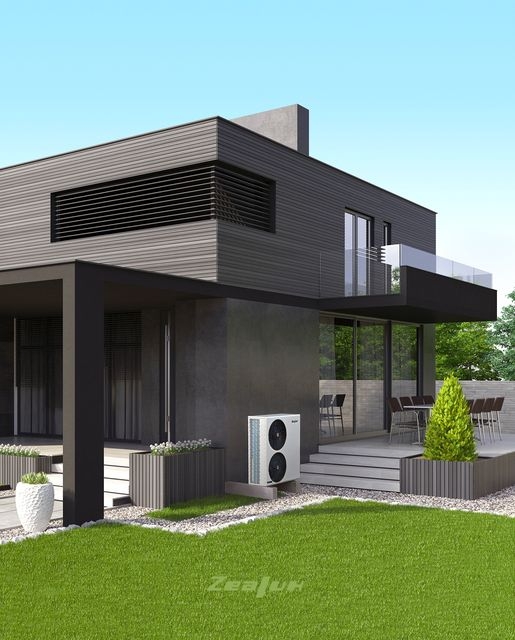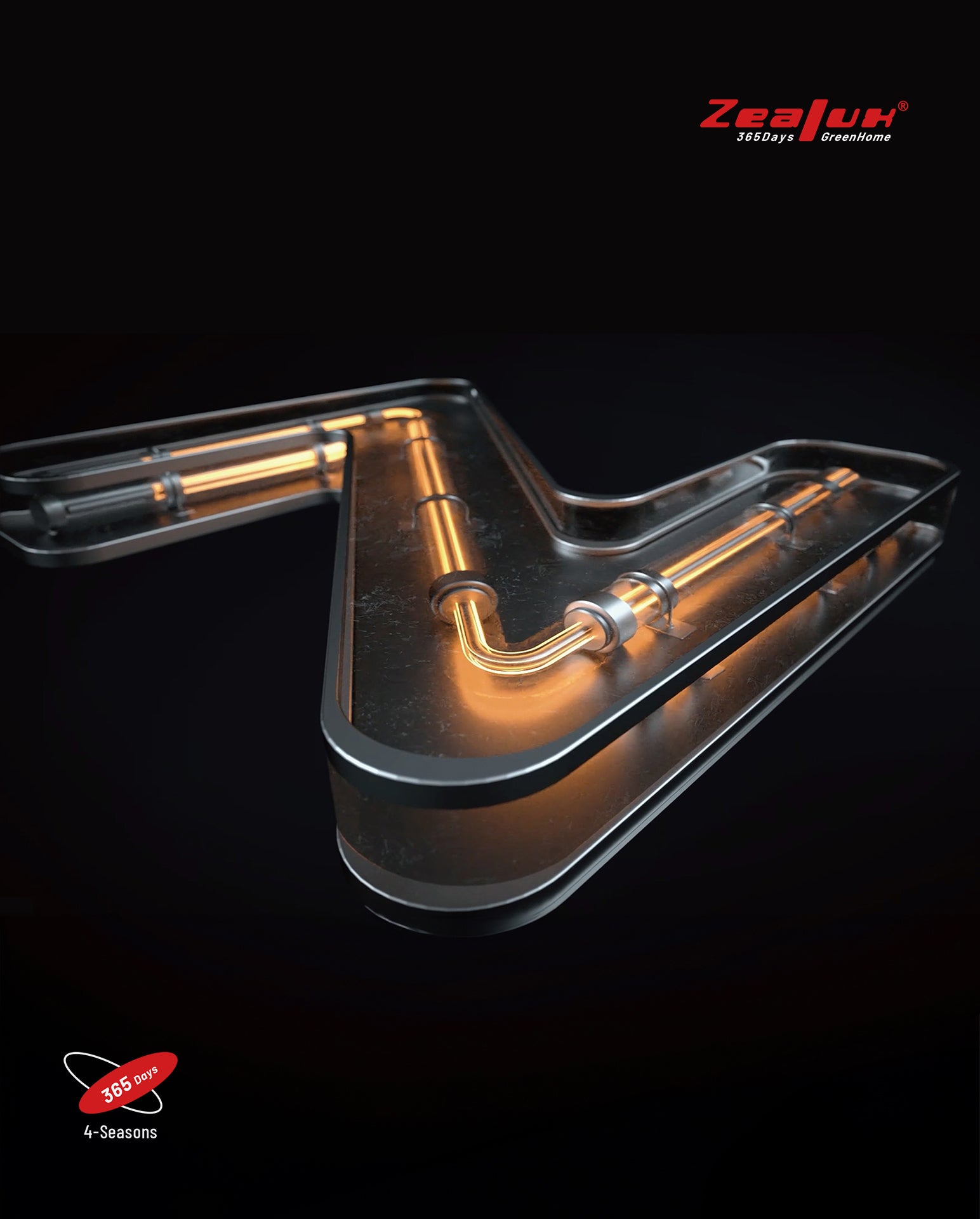How to improve the energy efficiency of your cooling system

Introduction
At the dawn of every summer, when temperatures soar and the mercury threatens to break records, our dependence on air conditioning and heat pump systems becomes more obvious than ever. Whatever it is air source heat pump or geothermal heat pump, these modern inventions have transformed the way we perceive and manage our indoor environment, offering us a cool sanctuary in the midst of the sweltering heat. However, while we rejoice in the soothing effect they bring to our lives, it has become crucial to think critically about the impact of this growing dependence on our energy consumption and on the planet we share. Air conditioning and heat pump systems, which have become undisputed pillars of modern comfort, are also major players in the global energy scenario. In the pages that follow, we delve into a careful exploration of the complex dynamics of these cooling technologies, looking at the complex challenges and exciting opportunities that lie ahead in the quest to improve their energy efficiency.
The challenges of energy efficiency
When we delve deeper into the world of air-conditioning and heat pump systems, it becomes clear that their energy efficiency represents a complex, multi-faceted challenge. On the one hand, the growing demand for cooling, fuelled by ever-higher summer temperatures, is putting considerable pressure on power grids. This increased demand can lead to consumption peaks at the hottest times of the day, highlighting the need for intelligent energy management to avoid overloads and blackouts.
On the other hand, the inefficiency of traditional air conditioning and heat pump systems compounds these challenges. Older or poorly maintained models can suffer considerable energy losses due to leaking ducts, worn compressors or insufficient thermal insulation. This mismatch between growing demand and the often mediocre performance of existing systems creates a significant gap between the energy consumed and the energy actually used for cooling, worsening environmental impact and costs for consumers.
Another major challenge lies in the choice of refrigerants used in these systems. Many traditional refrigerants, while performing well in terms of cooling, have a high global warming potential (GWP). This means they contribute significantly to global warming if they leak into the atmosphere. The industry is therefore increasingly turning to low-GWP refrigerants, but this transition requires technical adjustments and a review of maintenance practices to avoid potential leaks.
The complexity of these challenges is accentuated by the constant need to maintain a high level of comfort. Users expect pleasant, stable indoor temperatures, which can sometimes lead to overuse of air conditioning and heat pump systems, increasing the energy load. Finding the right balance between desired comfort and energy conservation remains a major challenge for designers, engineers and users alike.
In the coming sections of this article, we will explore in detail the innovative strategies, technological advances and recommended practices that aim to meet these energy efficiency challenges in air conditioning and pioneer inverter heat pumps.
Opportunities for technological innovation
When it comes to energy efficiency in air-conditioning and heat pump systems, it's impossible to ignore the exciting opportunities offered by technological innovation. These revolutionary advances open doors to a new era of cooling, where performance and sustainability converge to create cutting-edge solutions.
A major opportunity lies in the development of variable-speed compressors. These devices automatically adjust their speed according to cooling demand, helping to maintain constant temperatures while avoiding energy consumption peaks. This inherent flexibility optimizes energy use and helps reduce operating costs, while minimizing environmental impact. What's more, the intelligent control systems associated with variable-speed compressors enable proactive indoor temperature management, adapting system performance to actual needs and anticipating climatic fluctuations.
Another promising area of innovation lies in the development of low global warming potential (GWP) refrigerants. These chemicals are designed to minimize the impact on the climate in the event of leakage, and are a direct response to the need to reduce harmful emissions. Low-GWP refrigerants, such as hydrofluoroolefins (HFOs), offer comparable cooling performance to their traditional counterparts, while significantly reducing their contribution to global warming. However, the transition to these new formulations requires technical adjustments, including upgrading existing equipment to accommodate these innovative refrigerants.
Intelligent management systems also play a key role in improving energy efficiency. Thanks to the Internet of Things (IoT) and artificial intelligence (AI), it is now possible to monitor and control air conditioning and heat pump systems remotely. These technologies make it possible to react quickly to temperature changes, optimize performance according to usage patterns, and detect anomalies before they become major problems. The benefits of these intelligent management systems translate into substantial energy savings and better use of resources.
In short, technological advances offer fascinating prospects for completely changing the energy efficiency of air conditioning and heat pump systems. Advances in compressors, refrigerants and control systems only increase the potential that can be achieved. In the sections to come, we'll take a closer look at these possibilities and the concrete benefits they offer for the creation of more sustainable, more efficient cooling systems.
Best practices for optimizing efficiency
Beyond technological advances, the adoption of good practices is a crucial step towards optimizing the energy efficiency of air-conditioning and heat pump systems. Considerations such as judicious building design, proper unit installation, optimal airflow regulation and regular maintenance are all essential to improving the performance of these systems. By educating end-users and industry professionals on the importance of such practices, we can create a significant change in the way we approach cooling.
Conclusion
In sum, air conditioning and air water heat pump systems represent a complex facet of our quest for optimal thermal comfort. This quest must not be separated from our commitment to a sustainable and environmentally balanced future. In the following sections, we take a deeper dive into the technical aspects, innovative solutions and inspiring examples that are shaping the path to greater energy efficiency in cooling. By exploring this ever-changing landscape, we aim to create a harmonious balance between the coolness we cherish and the environmental responsibility we assume.
tags: heat pump supplier, swimming pool heat pump manufacturer, heat pump manufacturers
- Industry
- Art
- Causes
- Crafts
- Dance
- Drinks
- Film
- Fitness
- Food
- Games
- Gardening
- Health
- Home
- Literature
- Music
- Networking
- Other
- Party
- Religion
- Shopping
- Sports
- Theater
- Wellness
- News



